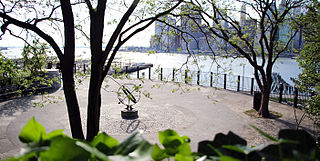
The Social Science Research Council (SSRC) is a US-based, independent, international nonprofit organization dedicated to advancing research in the social sciences and related disciplines. Established in Manhattan in 1923, it maintains a headquarters in Brooklyn Heights with a staff of approximately 70, and small regional offices in other parts of the world.
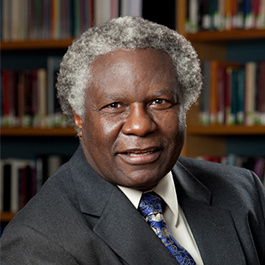
Calestous Juma was a Kenyan scientist and academic, specializing in sustainable development. He was named one of the most influential 100 Africans in 2012, 2013 and 2014 by the New African magazine. He was Professor of the Practice of International Development and Faculty Chair of the Innovation for Economic Development Executive Program at Harvard Kennedy School. Juma was Director of the School's Science, Technology and Globalization Project at Harvard Kennedy School as well as the Agricultural Innovation in Africa Project funded by the Bill and Melinda Gates Foundation. His last book, Innovation and Its Enemies: Why People Resist New Technologies, was published by Oxford University Press in 2016.
The Center for Public Leadership (CPL) is an academic research center at Harvard University that provides teaching, research and training in the practical skills of leadership for people in government, nonprofits, and business. The center works to prepare its students to exercise leadership in a world responding to a rapidly expanding array of economic, political, and social challenges. Located at Harvard Kennedy School, CPL was established in 2000 through a gift from the Wexner Foundation.
The Council for Responsible Genetics (CRG) was a nonprofit NGO with a focus on biotechnology.
The Institute for Citizens & Scholars is a nonpartisan, non-profit based in Princeton, New Jersey that aims to strengthen American democracy by “cultivating the talent, ideas, and networks that develop lifelong, effective citizens.” It administers programs that support civic education and engagement, leadership development, and organizational capacity in education and democracy.
The Maryland School of Public Policy is one of 14 schools at the University of Maryland, College Park. The school is located inside the Capital Beltway and ranks 16th nationally for schools of public policy according to U.S. News & World Report (2012).
Sharyn O’Halloran is the Strategic Academic Leadership Initiative Professor of Political Economy at Trinity College Dublin and Trinity Professorial Fellow. In 2006 she was named the George Blumenthal Professor of Political Economics and International and Public Affairs at Columbia University in New York City., where she served as the Senior Vice Dean and Chief Academic Officer at the School of Professional Studies at Columbia University in New York City.[1] A political scientist and economist by training, O’Halloran has written extensively on issues related to the political economy of international trade and finance, regulation and institutional reform, economic growth and democratic transitions, and the political representation of minorities.
Julia Marton-Lefèvre is a French - US environmentalist and academic. She studied history, ecology and environmental planning in the US and in France, and was born in Hungary.

The Institute of Development Studies (IDS) is a research and learning organisation affiliated with the University of Sussex in Brighton, England, and based on its campus in Falmer, East Sussex. It delivers research and teaching in the area of development studies.
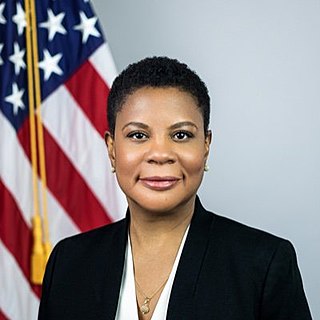
Alondra Nelson is an American academic, policy advisor, non-profit administrator, and writer. She is the Harold F. Linder chair and professor in the School of Social Science at the Institute for Advanced Study, an independent research center in Princeton, New Jersey. From 2021 to 2023, Nelson was deputy assistant to President Joe Biden and principal deputy director for science and society of the White House Office of Science and Technology Policy (OSTP), where she performed the duties of the director from February to October 2022. She was the first African American and first woman of color to lead OSTP. Prior to her role in the Biden Administration, she served for four years as president and CEO of the Social Science Research Council, an independent, nonpartisan international nonprofit organization. Nelson was previously professor of sociology at Columbia University, where she served as the inaugural Dean of Social Science, as well as director of the Institute for Research on Women and Gender. She began her academic career on the faculty of Yale University.

Kerri-Ann Jones was vice president of research and science at The Pew Charitable Trusts. She is the former United States Assistant Secretary of State for Oceans and International Environmental and Scientific Affairs at the U.S. State Department. Nominated by President Barack Obama in June 2009, she was sworn in on August 20 of that year.
Rohini Pande is an economist who is currently the Henry J. Heinz II Professor of Economics and Director of the Economic Growth Center at Yale University. She was previously the Rafik Hariri Professor of International Political Economy and Mohammed Kamal Professor of Public Policy at Harvard Kennedy School. Pande was the Co-Director of Center for International Development at Harvard University's Evidence for Policy Design research program (EPoD) and serves on the board of directors of the Abdul Latif Jameel Poverty Action Lab, MIT. She also serves on the board of the Bureau for Research and Economic Analysis of Development (BREAD), the Committee on the Status of Women in the Economic Profession (CSWEP) and as a co-editor of the American Economic Association's (AEA) journal American Economic Review: Insights. She is a Faculty Research Associate at NBER, CEPR and the IFPRI. Her research focuses on the economic analysis of the politics and consequences of different forms of redistribution, principally in developing countries. Her outstanding and empirical findings in fields of governance and accountability, women’s empowerment, role of credit in poverty, the economic aspects of the environment and the potential of policy design in these areas, won her the Infosys Prize 2022 in Social Sciences.

Ashoka University is a private research university located in Sonipat, India, providing a liberal education in the humanities, the social sciences, and natural sciences.
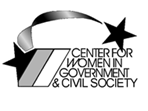
The Center for Women in Government & Civil Society (CWGCS) is a policy research center at the Rockefeller College of Public Affairs and Policy, University at Albany (SUNY). CWGCS was founded in 1978, and is a member organization of The National Council for Research on Women.
Neva Goodwin Rockefeller, known professionally as Neva Goodwin, is co-director of the Global Development And Environment Institute (GDAE) at Tufts University, where she is a research associate at the Fletcher School of Law and Diplomacy and director of the Social Science Library: Frontier Thinking in Sustainable Development and Human Well-Being.

The contributions of women in climate change have received increasing attention in the early 21st century. Feedback from women and the issues faced by women have been described as "imperative" by the United Nations and "critical" by the Population Reference Bureau. A report by the World Health Organization concluded that incorporating gender-based analysis would "provide more effective climate change mitigation and adaptation."
The India Observatory (IO) is a research unit at the London School of Economics and Political Science (LSE).
Lisa Dilling is an interdisciplinary scholar who focuses on the energy transition, climate adaptation, decision making, the use of information, and science policy. She aims to improve the effectiveness of policies for climate change. Dilling is a Professor of Environmental Studies at the University of Colorado, Boulder, a Fellow of the Cooperative Institute for Research in Environmental Sciences (CIRES), a member of the Center for Socio-Environmental Futures (C-SEF), and former Director of the Western Water Assessment (WWA).
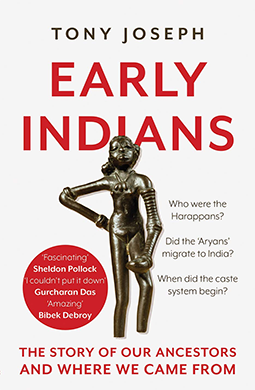
Early Indians: The Story of Our Ancestors and Where We Came From is a 2018 nonfiction book written by Indian journalist Tony Joseph, that focuses on the ancestors of people living in South Asia today. Joseph goes 65,000 years into the past—when anatomically modern humans, first made their way from Africa into the Indian subcontinent. The book relies on research findings from six major disciplines: history, archaeology, linguistics, population genetics, philology, and epigraphy, and includes path-breaking ancient DNA research of recent years. It also relies on the extensive study titled "The Genomic Formation of Central and South Asia", co-authored by 92 scientists from around the world and co-directed by geneticist David Reich of Harvard Medical School, in which ancient DNA was used. The book has been translated into Tamil, Hindi, Odia, Telugu, Marathi, Malayalam, Gujarati, and other languages.
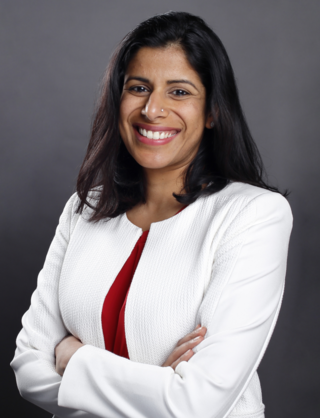
Shahzeen Attari is a professor at the O'Neill School of Public and Environmental Affairs at Indiana University Bloomington. She studies how and why people make the judgements and decisions they do with regards to resource use and how to motivate climate action. In 2018, Attari was selected as an Andrew Carnegie Fellow in recognition of her work addressing climate change. She was also a fellow at the Center for Advanced Study in the Behavioral Sciences (CASBS) from 2017 to 2018, and received a Bellagio Writing Fellowship in 2022.









